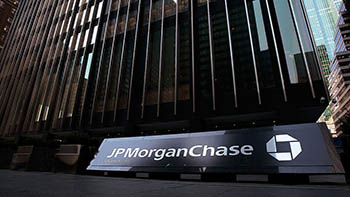(单词翻译:单击)

JPMorgan is in talks to quit its China securities joint venture with First Capital Securities in what would be the first such pullback by a western bank, although it denies the move would represent a retreat from the Chinese market.
摩根大通(JPMorgan)正与第一创业证券(First Capital Securities)谈判,拟从二者在中国组建的合资券商中退股。这将成为西方银行的首例此类退股,但摩根大通否认此举标志着它将撤出中国市场。
The US bank and its Chinese partner confirmed on Thursday that they were in talks over the future of JPMorgan First Capital but added that no deal had been reached. JPMorgan owns a third of the joint venture set up in 2010 as one of a series developed by western banks to gain a toehold in mainland markets.
周四,这家美国银行及其中国合资伙伴证实,双方正就第一创业摩根大通证券有限公司(JPMorgan First Capital,简称:一创摩根)的未来展开谈判,但双方补充道,目前尚未达成任何协议。摩根大通在成立于2010年的一创摩根中拥有三分之一股份。一创摩根是西方银行为在中国内地市场获得立足点而成立的一系列合资券商之一。
Most of the ventures are thought to have struggled financially, however, as the partners wrestled with priorities and the system of control. A rule change in 2012 allowed international partners to increase their stakes from one-third to 49 per cent but no western bank has yet done so.
不过,据信多数合资券商都陷入了财务困境,原因是合资双方在业务优先顺序和控制权上争斗不休。2012年,中国调整了规定,允许国外合作伙伴把持股比例从三分之一提高到49%,但迄今没有任何一家西方银行这样做了。
JPMorgan declined to comment on the success or otherwise of its JV but said: “JPMorgan believes in the long-term prospects of China and remains fully committed to our China franchise. We have a long-term strategic vision for our business in the country and continue to evaluate our options to strengthen our position in China in order to better serve our clients.”
摩根大通拒绝就其合资券商成功与否发表评论,但它表示:“摩根大通对中国的长远发展前景充满信心,并保持对中国业务的一贯承诺。我们对在中国的业务有长远的战略部署,将继续评估在中国的可行计划,不断稳固加强在中国的地位,以便为客户提供更完善的服务。”
JPMorgan’s move to look for an exit from the JV has sparked speculation that the US bank is already seeking a new partner with whom it could potentially build a stronger business. Western banks have been seeking greater control over their joint ventures as they face increasing global scrutiny from shareholders and regulators over their returns and how capital is deployed.
摩根大通寻求从这家合资券商中退股的举动令一些人猜测,这家美国银行已经在寻找新的合作伙伴,并可能与之构建更强大的业务。西方银行一直在谋求对它们建立的合资企业拥有更大的控制权,因为在全球范围内,股东和监管机构对它们回报水平和资本部署方式的审查越来越严格。
Goldman Sachs and UBS have the only two ventures with operational control — the result of well-timed rescues of local outfits in 2004 and 2006 respectively. Both are considered special deals that cannot be replicated following amendments to rules in 2007.
只有高盛(Goldman Sachs)和瑞银(UBS)对旗下合资券商拥有运营控制权——这是它们分别于2004年和2006年对当地券商及时施救的结果。两者都被视为特殊的交易,2007年规定修改后已不可被复制。
Goldman Sachs has been actively lobbying Beijing to allow foreign banks full ownership — something mainland authorities have already granted to other financial sectors such as asset management.
高盛一直积极游说北京方面允许国外银行全资控股券商,中国当局已在资产管理等其他金融部门批准了这一做法。
Last year HSBC was granted the right to apply for majority ownership of a joint venture it is setting up with Shenzhen Qianhai Financial Holdings. It was able to do that because of a rule change for Hong Kong-founded and -funded entities, which includes HSBC’s original bank in the city.
去年,汇丰(HSBC)被授予了申请在其与深圳前海金融控股有限公司(Shenzhen Qianhai Financial Holdings)组建的合资企业中拥有多数股份的权利。汇丰能够做到这一点,是因为中国调整了针对在香港创立和筹资的实体(汇丰最初在香港设立的银行就属于此类)参股合资企业的规定。
Others to hold minority stakes in China joint ventures include Credit Suisse, Deutsche Bank, Citigroup and Morgan Stanley. So far units have been allowed to underwrite primary equity and debt issuance but have mostly been excluded from the far more lucrative secondary trading markets.
其他在中国合资企业中持有少数股份的机构包括瑞信(Credit Suisse)、德意志银行(Deutsche Bank)、花旗集团(Citigroup)和摩根士丹利(Morgan Stanley)。到目前为止,这些合资企业已获准从事股票和债券发行的承销业务,但基本上不得进入利润丰厚得多的二级交易市场。


